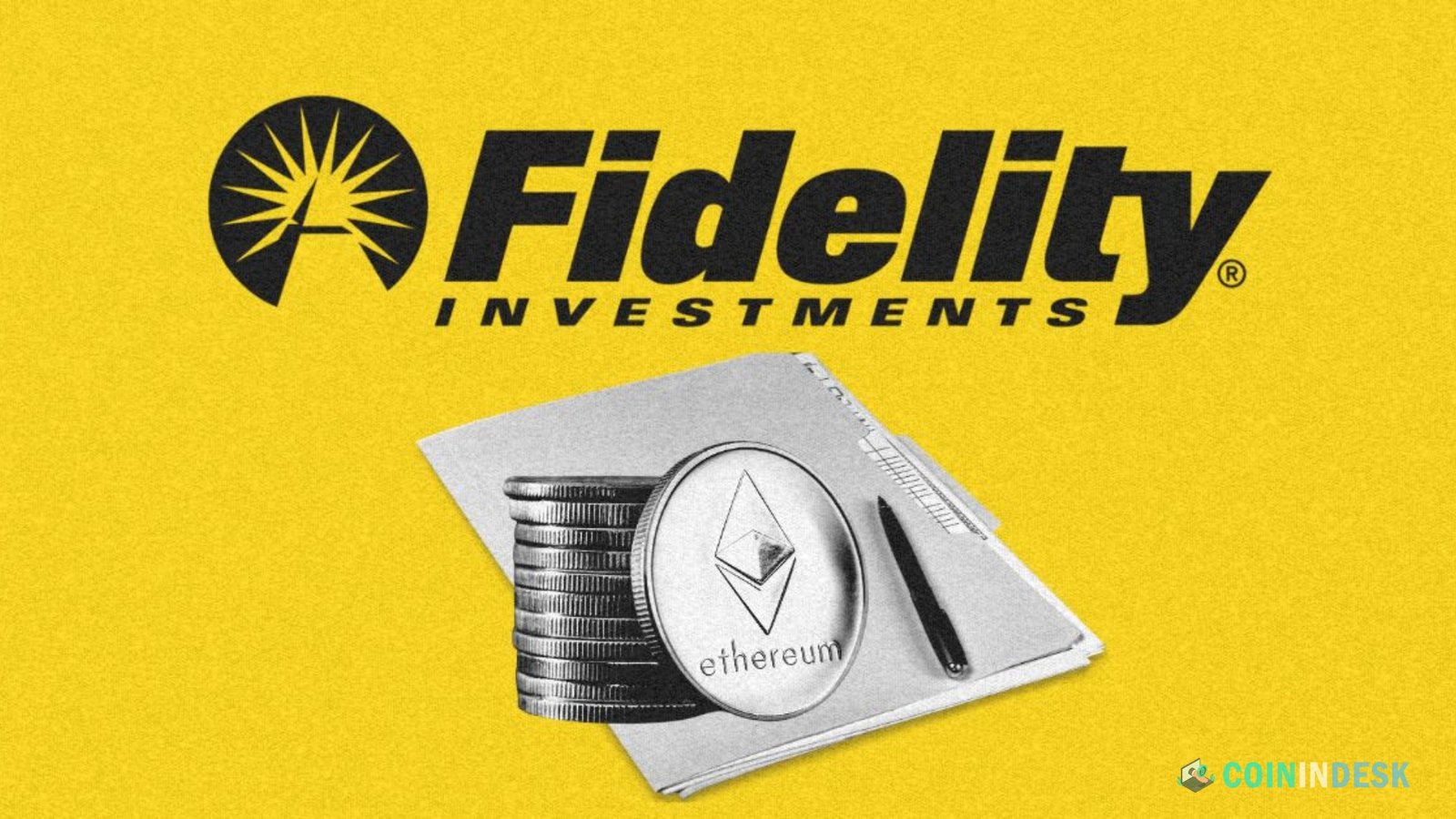Fidelity Ethereum ETF: Investors looking for new ways to get into digital assets have driven the explosive expansion and innovation in the cryptocurrency industry over the last decade. Ethereum is the second-largest cryptocurrency by market capitalization, and a new development in this field is the Fidelity Ethereum ETF, which aims to give investors a regulated and transparent way to invest in Ethereum. This article explains the meaning of the ETF, its possible effects on the market, the ticker symbol, and the role that Fidelity may play in shaping the trend of cryptocurrency investments in the future.
What is an ETF?
Defining an Exchange-Traded Fund (ETF) is necessary before examining the Fidelity Ethereum ETF in detail. Like individual equities, exchange-traded funds (ETFs) are exchanged on stock exchanges. To mimic a certain index or class of asset movement, exchange-traded funds (ETFs) invest in various assets like stocks, commodities, and bonds. Many new and old investors are drawn to exchange-traded funds (ETFs) because they provide a streamlined option to invest in several assets with just one transaction.
A cryptocurrency exchange-traded fund (ETF) is somewhat similar, except it invests in digital currencies like Bitcoin or Ethereum rather than equities or bonds. Without owning digital assets, this creates a regulated and easily accessible option for investors to participate in the frequently unpredictable cryptocurrency markets.
Fidelity’s Move into Ethereum ETFs
The world-renowned financial services firm Fidelity Investments has been an early adopter of cryptocurrency for quite some time. It generated headlines when Fidelity Digital Assets, the company’s subsidiary, started providing bitcoin custody services in 2018. Since then, Fidelity has been more active in the cryptocurrency market.
An important milestone in the firm’s dedication to digital assets is the launch of the Fidelity Ethereum ETF. With Ethereum’s growing popularity as a platform for decentralized finance (DeFi), smart contracts, and non-fungible tokens (NFTs), Fidelity’s decision to launch an Ethereum-focused exchange-traded fund (ETF) couldn’t be more well-timed or attractive to investors.
Launching this ETF highlights the increasing demand for Ethereum among institutions, as demonstrated by Fidelity’s decision. To avoid the complications of direct ownership, pension funds, hedge funds, and other institutional players could be able to acquire exposure to Ethereum through the ETF, a regulated investment vehicle.
ETF Ticker Symbol and Launch Details
We expect the ticker symbol “FETH” to be used for trading the Fidelity Ethereum ETF. The details about the debut date and regulatory permission are still being finalized, but interest in this ETF is already high. Also, the market has been quite kind to Fidelity’s Bitcoin ETF (FBTC), so that’s something to keep in mind. The launch of FETH is expected to take a similar trajectory, providing investors with a simple means to track Ethereum’s price fluctuations.
Like any other stock or exchange-traded fund (ETF), investors can purchase and sell FETH shares once the ETF is launched. This saves them the trouble of learning how to use a cryptocurrency wallet, the dangers of storing digital assets, and the intricacies of trading Ethereum on exchanges. On the contrary, customers can easily invest in Ethereum with their current brokerage accounts.
Why Ethereum?
Ethereum is the foundation of a decentralized ecosystem, not merely a coin. Smart contracts, first proposed by Ethereum in 2015, are agreements whose terms are put into code and may execute themselves. By executing on the Ethereum blockchain, these contracts pave the way for decentralized apps (dApps) to function decentralisedly.
Ethereum has played a key role in the growth of DeFi, a blockchain-based financial system that provides decentralized lending, borrowing, trading, and other services instead of conventional banks. Furthermore, NFTs—digital assets that stand in for ownership of one-of-a-kind things like artwork, collectibles, and virtual real estate—are mostly issued on the Ethereum blockchain.
Ethereum’s scalability, security, and energy efficiency are expected to see considerable improvements with the ongoing 2.0 upgrade, which involves shifting the network’s consensus method from proof-of-work (PoW) to proof-of-stake (PoS). This update can potentially bring in even more institutional investors and establish Ethereum as the top blockchain for decentralized apps.
The Benefits of a Fidelity Ethereum ETF
The launch of the Fidelity Ethereum ETF presents several key benefits for investors:
- Regulated Exposure: The ETF will be subject to oversight by financial regulators, providing a level of protection and assurance often lacking in the unregulated cryptocurrency markets.
- Ease of Access: Investors can buy and sell ETF shares through traditional brokerage accounts, eliminating the need to set up a cryptocurrency wallet or navigate cryptocurrency exchanges.
- Diversification: For investors who already hold Bitcoin or other cryptocurrencies, an Ethereum-focused ETF provides an opportunity to diversify their portfolio by gaining exposure to another major digital asset.
- Institutional Interest: The ETF is likely to attract significant interest from institutional investors, who have historically been cautious about investing in cryptocurrencies due to regulatory uncertainties and the challenges of securely holding digital assets. The Fidelity Ethereum ETF could be a gateway for these investors to enter the Ethereum market.
- Tax Efficiency: In many jurisdictions, ETFs offer favorable tax treatment compared to direct ownership of cryptocurrencies, particularly regarding capital gains. This could make the Fidelity Ethereum ETF an attractive option for tax-conscious investors.
Potential Risks and Considerations
While the Fidelity Ethereum ETF offers numerous advantages, there are also risks and considerations that investors should be aware of:
- Volatility: Ethereum, like all cryptocurrencies, is known for its price volatility. While the ETF structure may provide a regulated and convenient way to invest in Ethereum, it does not eliminate the inherent price fluctuations of the underlying asset.
- Regulatory Risk: The regulatory environment for cryptocurrency is constantly evolving. While ETFs offer a regulated way to invest in digital assets, future regulation changes could impact the ETF’s performance or ability to continue operating.
- Market Liquidity: The ETF’s success will depend partly on market liquidity. If the ETF attracts many investors, it will likely offer sufficient liquidity for easy trading. However, if demand is low, liquidity could be an issue.
- Tracking Error: Like all ETFs, the Fidelity Ethereum ETF will aim to track the price of Ethereum as closely as possible. However, there may be periods when the ETF’s performance diverges slightly from the price of Ethereum due to management fees, trading costs, or other factors.
The Broader Impact on the Crypto Market
Deploying Fidelity The debut of the Ethereum Trust Fund (ETF) was a turning point for the cryptocurrency industry, not only for Fidelity. The creation of Bitcoin and Ethereum exchange-traded funds (ETFs) illustrates that the financial sector accepts cryptocurrencies. Other financial institutions are anticipated to follow suit as more exchange-traded funds (ETFs) provide investors with digital asset exposure. The outcome may be more institutional investment in the cryptocurrency markets, lower volatility, and more liquidity.
Conclusion
Trading under the symbol “FETH,” the Fidelity Ethereum ETF is a major milestone in mainstreaming cryptocurrency into financial markets. More people will be able to join the growing pool of investors in the digital asset market since Fidelity provides a regulated and easy option to invest in Ethereum. Although investing in cryptocurrencies is not without hazards, investors looking to obtain exposure to one of the world’s most inventive and quickly growing assets can do so through the Fidelity Ethereum ETF, which offers a straightforward and potentially safer alternative.


